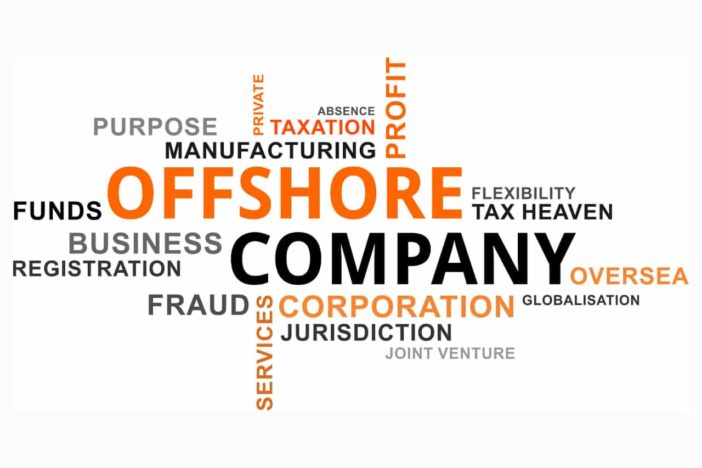Offshore companies are no longer new in the business world. The concept of going offshore can be quite complex since it involves a lot of considerations and planning.
Broken down into simple words, an offshore company is a company established in another foreign jurisdiction different from your home country.
Normally, businessmen refer to “going offshore” as the action of opening a company in a jurisdiction that has low tax or even no tax at all.
Indeed, an offshore company can bring you a huge number of advantages. However, these advantages depend greatly on the location of your company. Different jurisdictions have different sets of laws and regulations that favor you in different ways.
In this blog, let’s walk you through the basic guide for your incoming offshore journey – from key considerations to incorporation and bank application procedures.
1. Factors to consider when choosing offshore destinations
When choosing the best offshore company jurisdictions, you should take into account the following main factors:
Nationalities
Many jurisdictions have their blacklists of nationalities, which usually follow the FATF list of high-risk and non-cooperation jurisdictions.
The nationalities of your intended company should not fall under these blacklists. Otherwise, your chance of opening an offshore company will be lowered.
Tax optimization
There are many jurisdictions that have favorable tax regimes.
Many of them impose no tax at all or restrict taxes only to the income generated within the jurisdiction. This means foreign income will not be taxed. Some typical examples of these places are the British Virgin Islands (BVI), Bahamas, Marshall Island RAK, Hong Kong, and so forth.
Recently, some of the so-called “tax havens” have taken up a lot of changes regarding their tax policies. More taxes are being imposed on certain types of income and tax rates are being raised up. It is reckoned that more changes are coming up in the near future. Thus, you should do your research well before finalizing to incorporate in one of these tax havens.
If you do not want to deal with changes, you may consider incorporating in places with low tax rates. These places indeed will have taxes, at low rates, but usually offer you a great degree of stability.
Take Singapore as an example, the corporate income tax stands at 17%. However, the effective tax rates are much lower thanks to many tax-cut schemes. To illustrate, with the tax exemption scheme for startups, the effective rates are lowered to only 4.25% and 8.5%, imposed on the first 200,000 SGD of income.
Assets protection and security
Some jurisdictions are capable of providing you with a high degree of confidentiality. Normally, these places will not disclose the ownership of your company to the public.
Examples of countries that have strict privacy policies are Nevis and Belize.
You can form a trust to own another company in Belize. According to Belize’s laws, the trust’s property will be immediately shielded from any foreign judgments. The only orders that can have an effect on the trust are from Belize’s courts.
2. Procedure to open an offshore company
The process of registering a company may vary from place to place. So, if you are still new to the concept of going offshore, the advice here is to use offshore company formation services.
The service provider will take care of the registration on your behalf. The general procedure can be described as follows:
Step 1: Choosing the company’s type and name
Each jurisdiction names the types of companies differently from others. And each type has a different set of characteristics. You should consult the service provider to find out which type of business entity suits your purpose most.
As for the company’s name, there are some universal rules that you should not violate.
First, the name should not be identical to another existing one. Second, it should not violate any copyright law. Last but not least, it should not contain prohibited words or obscene sense.
Step 2: Filing KYC documents
KYC stands for Know Your Client. At this stage, you need to supply the necessary papers to the service provider. The provider will collect these, file your application and send it to the registration agency.
A standard file of the application will contain:
- Your identification document (passport or an equivalent document)
- Proof of your residential address
- A description of your company’s business activities
- Information of other members of your company
The registration authority may ask you to provide more documents for further verification. The service provider will inform you about this.
Step 3: Getting the result
After the application is sent, all you need to do is wait.
For many jurisdictions, you can expect to receive an electronic certificate within a week, sometimes in only 2-3 days, if your application is approved.
The original or physical certificate will be sent to you after a few more days.
3. Opening an offshore bank account
Without a bank account, you cannot make any transaction or actually run your business.
Opening a corporate bank account in an offshore jurisdiction is always a big concern to many business owners.
Different banks have different ways to examine and approve their customers’ applications. To increase your chance to get an offshore bank account, you can follow the following checklists:
Avoiding blacklists
Your company’s members’ nationalities, including yours, should not fall into a bank’s blacklists. Otherwise, your approval chance by the bank will be lowered. You can look at international blacklists as a reference.
Furthermore, your business sector should not fall into a bank’s blacklists too. Normally, high-risk sectors such as real estate, forex trading, and oil exploitation will be included in the lists.
Providing good business proof
Having good business proof can mean your company is a legitimate business. If your company is newly formed, you can supply a contract or an agreement (drafts are sometimes acceptable) to prove that your company has been in touch with a counterparty.
In case there is no document, you can still provide business proof of another company of which you are a shareholder.
4. Other considerations when going offshore
Many jurisdictions or nations have set up rules or followed international rules in order to prevent tax evasion. You should know whether your place of incorporation has the following:
- Controlled foreign company rules (or CFC rules): the aim of these rules is to tax the undistributed profits paid to a domestic holding company from a foreign subsidiary company.
- General anti-avoidance rules: these rules give an authority a right to deny transactions or agreements that bring tax advantages only.
- Any other anti-tax-evasion provisions
Furthermore, you should consider if the place of incorporation has any tax treaty with other jurisdictions. Your company and your business partners can benefit from the reduced tax rates or even exemptions regulated in these treaties.
5. Conclusion
There you have it, a basic guide for going offshore. Two main problems you need to settle are finalizing the jurisdiction to form your offshore company and opening an offshore bank account for the company.
You should spend plenty of time doing thorough research. Or you can consult experienced professionals or offshore experts to help you get more insights on the matter.





